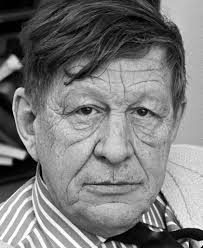“Thousands have lived without love, not one without water” – W. H. Auden

LOTRW readers may remember my Starbucks anthropologist friend who introduced me a year or more ago to the Friends Committee on National Legislation. We continue to see each other at that same Starbucks off and on. Last week I was telling him about the 2016 AMS Summer Policy Colloquium, which happens to start Sunday evening, June 5. I’ve been particularly excited about this sixteenth year of our program for two reasons. First, we have a larger-than-usual contingent coming in – close to 40 participants. What bright, high-minded, incredibly motivated and unbelievably sociable early-career professionals! And they’re actually outnumbered by the speakers they’ll hear – a similarly passionate and gifted crowd. The two groups engage in hearty discussion over the ten days that blurs the boundary between the teachers and the taught. To be in this company is to learn that life is good and that the future is in good hands.
Second, this year’s Colloquium has a bit more emphasis than some past years on water – water science, and water policy. We have a half-day devoted to domestic water policy, and a second half-day focused on international aspects. A module on national security will also include a focus on water matters. One of our White House presenters is responsible for the CEQ water portfolio. And so on.
Well, I’d been going on for a while about all this with my (patiently-listening) friend when he happened to interject the W.H. Auden quote above.
A great line. And often cited. An example, one of many: You can actually find that quote on a United Nations website (reminding the reader that a single hamburger represents 2400 liters of water consumption).
But what was the context? The source is the Auden poem “First things first.” Here are the verses in their entirety.
Woken, I lay in the arms of my own warmth and listened
To a storm enjoying its storminess in the winter dark
Till my ear, as it can when half-asleep or half-sober,
Set to work to unscramble that interjectory uproar,
Construing its airy vowels and watery consonants
Into a love-speech indicative of a Proper Name.
Scarcely the tongue I should have chosen, yet, as well
As harshness and clumsiness would allow, it spoke in your praise,
Kenning you a god-child of the Moon and the West Wind
With power to tame both real and imaginary monsters,
Likening your poise of being to an upland county,
Here green on purpose, there pure blue for luck.
Loud though it was, alone as it certainly found me,
It reconstructed a day of peculiar silence
When a sneeze could be heard a mile off, and had me walking
On a headland of lava beside you, the occasion as ageless
As the stare of any rose, your presence exactly
So once, so valuable, so very now.
This, moreover, at an hour when only to often
A smirking devil annoys me in beautiful English,
Predicting a world where every sacred location
Is a sand-buried site all cultured Texans do,
Misinformed and thoroughly fleeced by their guides,
And gentle hearts are extinct like Hegelian Bishops.
Grateful, I slept till a morning that would not say
How much it believed of what I said the storm had said
But quietly drew my attention to what had been done
—So many cubic metres the more in my cistern
Against a leonine summer—, putting first things first:
Thousands have lived without love, not one without water.
Hmm. A reminder that some of us went into physics not because of the challenge but rather its opposite. To study physics with its mathematics and experiments to guide against missteps is a simple matter compared with insightfully interpreting a work like this. Surely Mr. Auden was very much in touch with nature. But much like a physicist, although with different tools, he also probed the nature of nature. He could see and speak of water’s role in our complicated relationship with nature as a as resource, a threat, and a victim. But he wasn’t content to let matters lie there; he reminded us that God and love (and Satan and evil for that matter) are all interwoven with this story and its telling.
Speakers and participants come in already knowing this reality – that science is accomplished by human beings, and that putting science in the service of society takes sustained energy, commitment, and even compassion and courage, as much raw intellect. But the Colloquium experience affirms and drives home this fuller understanding.
Colloquium participants and teachers would universally argue that just as life without water is impossible, life without love is not worth the living. It’s merely existing… treading water (there’s that word again) if you will, versus realizing the fullest measure of our potential, making our time here on Earth matter.
The best part? Knowing that Colloquium participants and speakers are by no means unique. Instead they represent just the smallest sampling of the much larger communities of scientists, policymakers, business leaders and others who are collaborating in millions of ways day in and day out to make the world a better place. If you’re reading this you’re part of this broader, positive movement. That’s also true of other communities of practice, engaging billions of people. Something to keep in mind when news headlines offer a different message.
There’s some weekend left. So, first things first. Put down that office work – or that crossword puzzle or sudoku – and devote some time to puzzling over Auden’s message. Or maybe craft your better one. Or share a bit of love.
